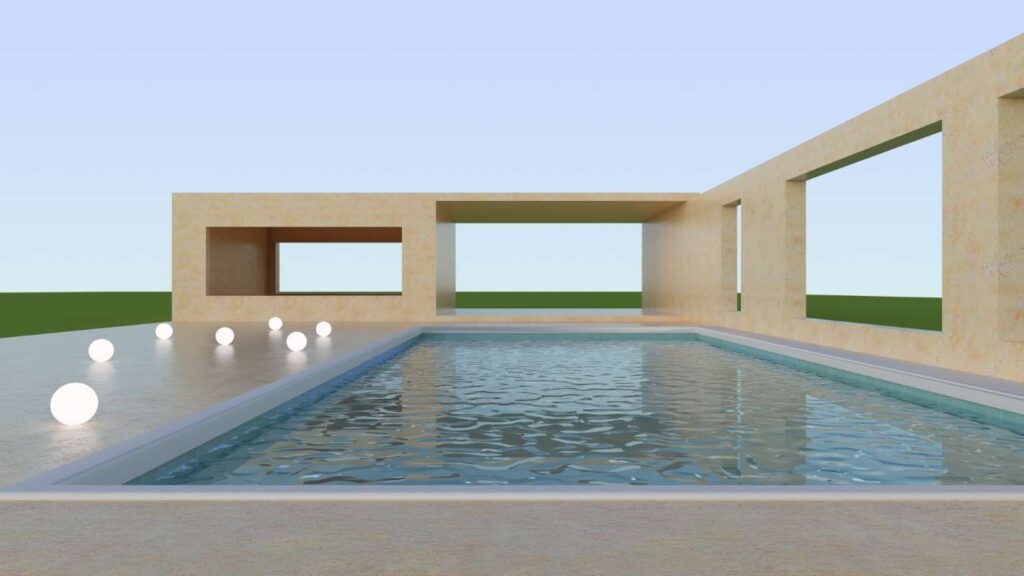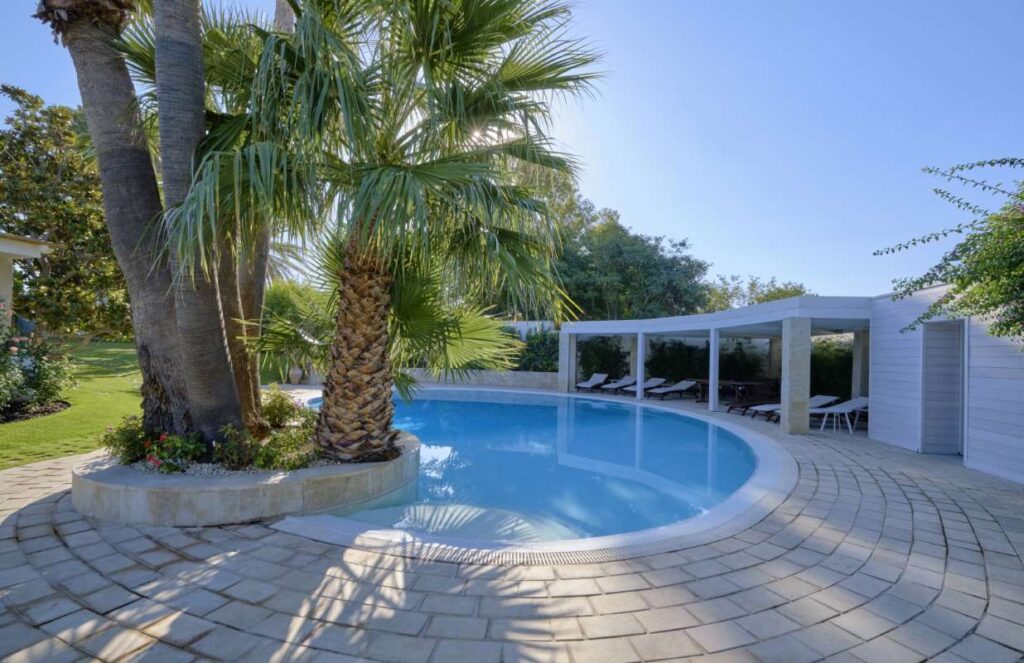Dealing with Mineral-Rich Water in Nevada Pools
Discover effective strategies for managing mineral-rich water in Nevada pools, ensuring crystal-clear water and a healthy swimming environment.
In the dry and often arid climate of Nevada, pool owners face unique challenges regarding water quality and maintenance. One of the most pressing issues is the presence of mineral-rich water, which can lead to a variety of complications for pool owners. This blog post delves into the intricacies of dealing with mineral-laden water in Nevada pools, providing you with practical solutions and insights on maintaining a clean, clear, and inviting swimming pool. We will explore how mineral-rich water affects pool chemistry, the problems it can cause, and the best practices for managing these issues effectively.
The Impact of Mineral-Rich Water on Pool Chemistry
– Mineral-rich water is often characterized by elevated levels of calcium, magnesium, and other minerals. The source of this water can be municipal supplies or well water, both of which can introduce high mineral content into your pool.- High levels of calcium can lead to calcium scaling, which manifests as white or cloudy deposits on pool walls, floor, and equipment. This not only affects the aesthetic appeal of your pool but can also lead to clogging filters and other equipment, increasing maintenance costs.- An imbalance in mineral content can also affect pool pH levels, leading to corrosion of pool surfaces and accessories, or causing skin and eye irritation for swimmers. To illustrate the importance of monitoring pool chemistry, consider this statistic: pools with unbalanced mineral content can lose up to 50% of their equipment lifespan due to accelerated wear and tear. Regular testing and adjustments are essential to keeping mineral levels in check.
Common Problems Associated with Mineral-Rich Water
– Scaling and Staining: As mentioned earlier, calcium scaling is a common problem. If left unaddressed, it can lead to permanent staining on tiles and other surfaces, as well as reduced efficiency in heating systems. – Cloudy Water: High mineral levels can lead to cloudy water, which may deter swimmers and requires additional chemical treatments to clarify. – Increased Chemical Usage: Mineral-rich water often necessitates more frequent chemical additions to maintain balance. This can lead to higher operating costs and more time spent on maintenance tasks. – Filter Clogging: Minerals can accumulate in filters, leading to decreased flow rates and increased energy consumption as pumps work harder to circulate the water. This situation further exacerbates water clarity issues and can lead to premature filter replacement.To combat these problems, pool owners should incorporate regular maintenance routines and consider using specialized products designed to address mineral issues. For example, a calcium hardness reducer can help manage elevated calcium levels effectively.
Strategies for Managing Mineral-Rich Water
– Regular Water Testing: Implement a consistent water testing schedule. Testing should include measurements of pH, alkalinity, calcium hardness, and levels of other minerals. This allows for timely adjustments and helps predict potential issues before they escalate.- Use of Water Conditioners: Consider using water conditioners that can help bind excess minerals, making it easier to manage them within your pool. These products can effectively reduce scale formation and cloudiness.- Maintain Balanced Alkalinity: When alkalinity is within the recommended range (80-120 ppm), it acts as a buffer for pH levels, reducing the likelihood of scaling and other related issues. Adjust alkalinity as needed to create a more stable swimming environment.- Implement Filtration Solutions: Upgrading to a more robust filtration system can help manage mineral content effectively. Systems that utilize cartridge or diatomaceous earth (DE) filters are especially good at trapping tiny particles, including minerals that contribute to water cloudiness.- Regular Cleaning: Regular brushing of pool surfaces can help prevent scale build-up. Additionally, routine maintenance of the filter system ensures that it runs efficiently, reducing the chances of clogs and other complications.- Consider Reverse Osmosis: For severe mineral issues, reverse osmosis (RO) systems can treat pool water by removing excess minerals and impurities. While this is a more costly investment, it can significantly improve water quality for pools suffering from high mineral content.
Best Practices for Pool Maintenance in Nevada
To maintain a healthy swimming environment in Nevada, pool owners should adopt best practices that not only address mineral-rich water but also enhance overall pool care:1. Schedule Regular Professional Maintenance: Engaging a professional pool service can alleviate the burden of maintenance on pool owners. Services like those offered by Superior Pool Routes ensure that your pool is maintained to the highest standards, allowing you to enjoy your investment fully.2. Educate Yourself on Pool Chemistry: Understanding the basics of pool chemistry is crucial. Knowledge of how different chemicals interact and affect water quality can empower pool owners to make informed decisions about their maintenance routines.3. Invest in Quality Equipment: High-quality pool equipment, including pumps, filters, and heaters, can withstand the challenges posed by mineral-rich water. Investing in reliable products can lead to reduced long-term maintenance costs.4. Utilize Seasonal Maintenance Plans: Consider seasonal maintenance packages to prepare your pool for the Nevada heat. These plans can include extensive cleaning, chemical balancing, and equipment checks, ensuring that your pool is in optimal condition year-round.5. Stay Informed on Local Water Quality: Being aware of local water quality reports can help you anticipate changes in mineral levels and adjust maintenance practices accordingly. Regular communication with your water supplier can provide valuable insights.Incorporating these best practices into your pool maintenance routine can lead to significant improvements in water quality and reduce the likelihood of complications associated with mineral-rich water.
Conclusion
In conclusion, dealing with mineral-rich water in Nevada pools requires a proactive approach and a solid understanding of pool chemistry. By implementing regular testing, utilizing specialized products, and engaging in best maintenance practices, pool owners can enjoy a clear and inviting swimming experience. Remember, the key to a healthy pool lies in consistent care and attention to detail. As a call to action, consider connecting with pool maintenance professionals like those at Superior Pool Routes for expert guidance and support in managing your pool care needs. Whether you’re an aspiring entrepreneur or an established service provider, understanding and effectively managing mineral-rich water is essential to ensuring a successful pool ownership experience. For more information about quality pool routes, check out our
Pool Routes For Sale page today!



